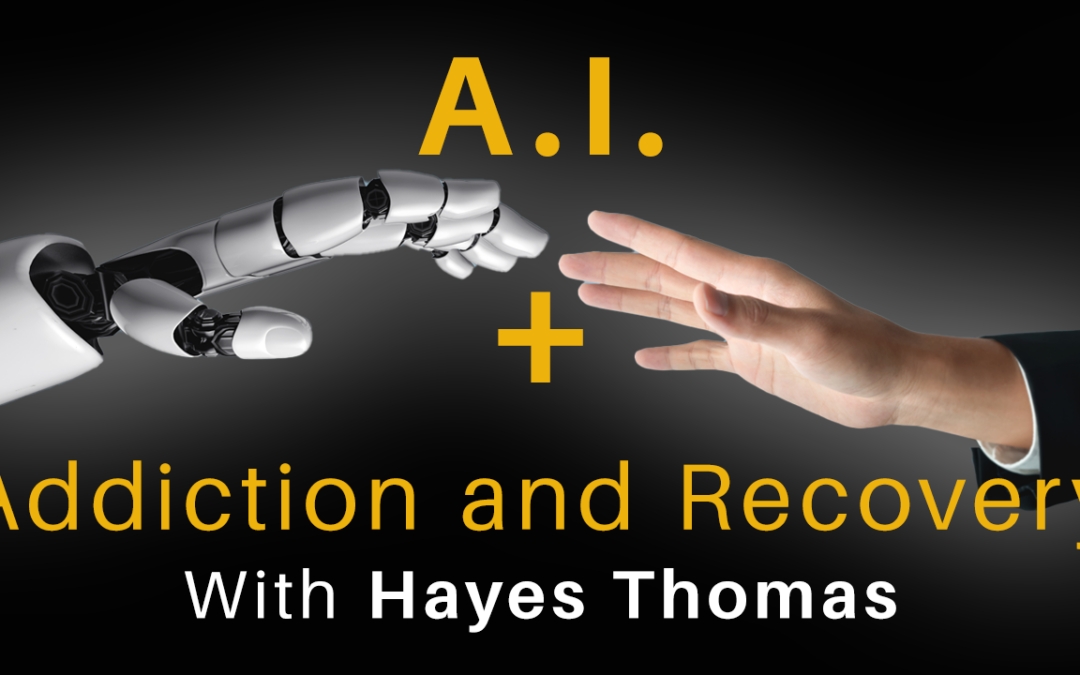In this episode of the “Beat Your Addiction” podcasts, co-hosts Scott Jones and John J. Giordano engage in a detailed conversation with guest Hayes Thomas, an entrepreneur and tech innovator focused on advancing addiction recovery through technology. The discussion revolves around Thomas’s platform, “Wingman for Recovery,” which utilizes advanced AI algorithms and data analytics to aid addiction treatment and recovery. Thomas draws on his extensive experience in tech and his personal loss to create a more effective recovery tool that is tailored to individual experiences. The app is designed to help users navigate cravings, connect with recovery support, and track their progress, all while ensuring user privacy and security. The conversation covers topics like the importance of personalized recovery plans, the shortfalls of traditional rehab programs, and the potential for technology to provide additional support in the ongoing battle against addiction, paving the way for improved recovery outcomes.
Highlights
- Introduction of Hayes Thomas and his background in technology and addiction recovery.
- Development of “Wingman for Recovery,” emphasizing personalized data collection for addiction treatment.
- The importance of technology in revolutionizing addiction recovery systems.
- Discussion on why traditional rehab programs see high relapse rates within two weeks post-treatment.
- “Wingman’s” emphasis on data privacy and adherence to HIPAA compliance.
- Using AI to provide real-time support for individuals experiencing cravings or relapses.
- The platform also tracks user progress and keeps family and counselors updated, facilitating a holistic recovery program.
Key Insights
-
Data-Driven Approach: Hayes Thomas emphasizes the transformative potential of data in addiction treatment. His platform, “Wingman,” meticulously gathers information about users, which creates a rich profile that enables personalized recovery suggestions and interventions, similar to how hotels market to specific customer preferences. By highlighting individual needs and triggers, the platform aims to improve overall treatment outcomes, which has historically been a significant challenge in the addiction recovery field.
-
Efficacy of Existing Systems: The discussion highlights a glaring shortcoming in traditional rehabilitation programs: the high relapse rate of 98% within two weeks post-treatment. Thomas and Gerano identify the necessity of continuous support and engagement beyond initial treatment, advocating for a more sustained, data-informed approach that actively manages the recovery journey.
-
Generative AI in Recovery: The “Wingman” platform represents the use of modern technology, specifically generative AI, to learn from user interactions and provide customized support during crucial moments of temptation. This technology is sensitive to users’ needs, suggesting tailored activities to distract from cravings, acknowledging the unique challenges individuals face in recovery.
-
Community and Connectivity: A key feature of the platform is its ability to keep therapists, counselors, and supportive family members in the loop regarding the recovering individual’s status. This interconnectedness creates an environment of accountability and support, helping to curb isolation, which is often a significant factor in addiction.
-
Privacy and Security: Addressing concerns regarding the data collected through the platform, Thomas reassures potential users that “Wingman” is HIPAA compliant, ensuring that all personal data remains confidential unless the user chooses to share it. This assurance is crucial for building trust in a demographic often wary of institutional oversight.
-
Expanding the Scope of Treatment: The podcast reveals how the “Wingman” platform can adapt to cater to various demographics, from postpartum women to people struggling with broader lifestyle issues. Its flexibility underscores the importance of individualized recovery plans—a crucial shift away from a one-size-fits-all approach.
-
Mission Beyond Profit: Hayes Thomas articulates that the development of “Wingman” goes beyond commercial gain; it is a labor of love grounded in personal tragedy and community commitment. By aiming to provide valuable tools that genuinely help people struggling with addiction, they aspire to foster a more humane approach to treatment that values individual recovery journeys and society’s collective responsibility.
By integrating cutting-edge technology with compassionate support systems, “Wingman for Recovery” represents a pioneering approach to addiction and recovery, leveraging innovation to improve patient outcomes while ensuring user-centric privacy. The discussion in this podcast invites listeners to reconsider the potential avenues for recovery and opens a dialogue about the future of addiction treatment—one that is more informed, engaging, and connected.


Recent Comments